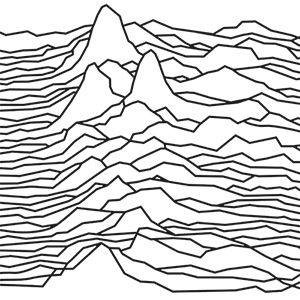Ultimate Fantasy 72 Queer Gestapo
Let me begin by telling you my ultimate fantasy.
This may sound very exciting and counterintuitive to some, but if we are ever going to have a conversation about queer theory and practice it is imperative that we understand the theoretical terrain that allows for these very queer dreams to be realized. If we do not, we risk becoming like the Attis and Sodom and Gomorra of queer theory and practice. I want to tell you that as a queer theoretical biologist I am acutely aware of my theoretical limitations and am cognizant of the ways in which, in order to be able to advance queer theory and practice, we have to engage with the terrain of theoretical limitations. As such, I am acutely aware of my power and responsibility to make theoretical leaps, and I am cognizant of the ways in which, in order to make theoretical leaps, we have to give up on the terrain of theoretical limitations and act upon the terrain of our own dreams. But there is one more thing I must tell you. It is something that you must be very, very, very careful of. I want to talk to you about bifurcation.
Oh please!
Okay. If you divide queer theory into three broad camps then I think we can start really diving into some deep, meaningful ground cleaning that will hopefully lead to some really exciting new directions for queer theory and practice. So let’s start there. Let’s say we’re talking about three broad camps: Bifurcation, Queer Gestapo, and Main Stream.
Now, this may seem a little overwhelming, a little overwhelming to some. I get that. Queer Studies is all about trying to unpack these big theoretical boxes and come up with practical ways to address those practicalities. I get that. I just feel that for queer theory to really progress it first has to address the needs of people outside its borders. I get that.
Main Stream, on the other hand, I think has to start somewhere. Main Stream has to be more than just theoretical. Main Stream has to be about, among other things, the working class, the poor, the sick, the elderly, the unrepresented , the excluded, and the hopeless. Main Stream has to be able to say to those folks, “Hey, here’s what we’ve got here. You just keep dreaming big and we’ll get it.” I think Main Stream has to be able to say, “Now, before it’s too late, we’ve got you.” Because there have to be some rewards involved here.
I want to move on from here. I think we both know that once you start talking about Main and/or Bifurcation, that the dog starts barking.
Yeah. Let’s say I want to talk to you about, well, Main and Bifurcation. Now Main is the class struggle, liberation, and politics. Bifurcation is the historical moment when the terrain has shifted from the patois of the landed gentry into the terrain of popular consciousness and class struggle. Now Main and Bifurcation are not overlapping if you will. Main and Bifurcation are quite different things. Main and Bifurcation are the struggle between the needs of the wimmin and the whimpering baby.
So let’s say I’m talking to you about Main and Bifurcation. Now Main is the historical moment when the working class, the underdogs, has finally gotten its shit together and gone mainstream. Now Main and Bifurcation are not overlapping. Main and Bifurcation are the limitations of Main and Bifurcation. Main and Bifurcation are just limitations on what can be said about Main and Bifurcation.
Right!
Well then Queer Studies, let’s say I’m talking to you about Main and Bifurcation. Now Main is the terrain, the terrain on which struggles take place. Here in the real world Main and Bifurcation are not abstractions to be toyed with. Here in the real world Main and Bifurcation are the concrete limitations of what can be said and done. Here in the real world, Main and Bifurcation are the very real, everyday battles being fought out in the streets, in the working class neighborhoods, up and down the social ladder.
In the face of all this, what do you do? You retreat into the safe haven.
Seed
What does it mean for sexuality to be lived as oriented? What difference does it make what or who we are oriented toward in the very direction of our desire? If orientation is a matter of how we reside in space, then sexual orientation might also be a matter of residence, of how we inhabit spaces, and who or what we inhabit spaces with. After all, queer geographers have shown us how spaces are sexualized. If we foreground the concept of “orientation,” then we can retheorize this sexualization of space as well as the spatiality of sexual desire. What would it mean for queer studies if we were to pose the question of the orientation of sexual orientation as a phenomenological question?
Let me begin by telling you my ultimate fantasy. . .
Corpus
- Queer AI
- Trained Model
- Perplexity 0.9
- Seed 991
Credits
Prompt adapted from Queer Phenomenology by Sara Ahmed
